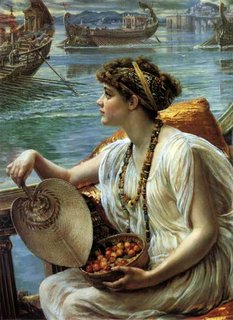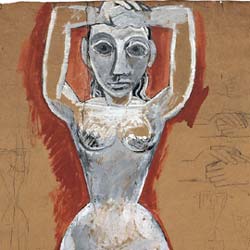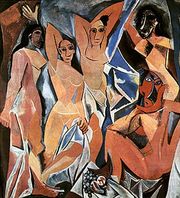- Mr. James Cantlie (later, Sir) (1851-1926), and Dr. George
Carmichael Low (1872-1952) establish the Society of Tropical
Medicine and Hygiene. It became 'Royal' by charter from George V in
1920. Its first President was Dr. Patrick Manson (later Sir) (1844-1922),
a teacher and friend of Dr. Sun Yat Sen, the same as Cantlie, who was Sun
Yat
Sen's teacher in Hong Kong. Both, Cantlie and Manson had been involved in
setting up a College of Medicine for Chinese in Hong Kong, which later
became the Hong Kong University. The first Vice President was Ronald
Ross(1857-1932) (later, Sir), the famous malariologist.
- TISCO or Tata Iron and Steel Company Limited, now
Tata
Steel, was established in 1907, India's first iron and steel plant, in
Jamshedpur (
जमशेदपूर,
જમશેદપ્ર
جمشدﭘور ), also called
Tatanagar, a town in Jharkand state of India named after Jamshedji Tata (
જમશેદજી
ટાટા ), (1839 - 1904), its progenitor, by Lord
Chelmsford, Viceroy of India, in 1919. A Parsee
who had made his fortunes in the textile mills of Maharashthra, deeply
imbued
in Zoroastrianism, he had constructed a hotel in Bombay, the Taj Mahal
Hotel, in 1903. It was the first large hotel in India, and had been set up
reputedly because established hotels of the time were owned by Europeans and
did not allow locals.
- Ramsay Hunt (1872 - 1937), an American neurologist describes a
new syndrome and its complications caused by herpetic inflammations of the
geniculate ganglion. The condition, herpes zoster oticus, is now known by his
name.
- The Diamond Sutra of 868, a Buddhist scripture later dated as the
oldest known printed book in the world, printed in the 9th year of Xiantong Era
of the Tang Dynasty, i.e. 868 CE is discovered in the Mogao Caves at the
edge of a desert in China.
- James Murray Spangler invented the first Hoover
vacuum
cleaner.
- Nobel Prize in Physics awarded to Albert Abraham
Michelson (1852- 1931) at the University of Chicago, the first American to
be honoured with the prize, "for his optical precision instruments and the
spectroscopic and metrological investigations carried out with their aid".
Michelson had used his optically based instruments to measure the speed of
light, and in 1883 published a measurement of 299,853+/-60 km/s. Using the
resolution obtained by fine prismatic diffraction gratings, he had also been
involved in setting up an absolute standard for the metre using cadmium
spectral emission lines. "It follows that we now have a natural standard of
length, the length of a light-wave of incandescent cadmium vapor; by means
of which a material standard can be realized, whose length can not be
distinguished from the actual standard meter - so that if, through accident or in
time, the actual standard meter should alter, or if it were lost or destroyed, it
could be replaced so accurately that the difference could not be observed",
he stated in his speech.
- August 1st-9th, Baden-Powell leads the first Scout camp on
Brownsea Island, England. Much has already been written on this
extraordinary movement which caught the imagination of the world, young
and
old alike, not to mention the personality of its dedicated creator and hero of
Mafeking, Lieutenant-General and Lord Baden-Powell, not always
complimentary. His ideas, nevertheless, embody the spirit of the times, and
are all of an accord with those of his many and influential friends (which
included Robert Browning, William Makepeace Thackeray, John Ruskin,
and
the scientist Thomas Huxley, who were among the more famous regular
visitors to his home, and Rudyard Kipling
since their first meeting in Lahore between 1882 and 1883). Brownsea island
is
an ancient and picturesque island in Poole Harbour, with wildlife, woods and
heathland, an old castle and more recent church, which fell into possession of
various people in the course of time. In 1907, the island was owned by
Charles and Florence van Raalte, close friends of Baden-Powell,
who
used the island as a holiday home. The scouting activities revolved around
camping, observation, woodcraft, chivalry, lifesaving and patriotism, with the
wake-up call sounded on a kudu horn, booty from the Matabele war. Leaders
present at the time,however, were deeply upset upon seeing the brass
fleur-de-lys given to the scouts being thrown overboard on the return boat
journey from the camp. The island continued to be used for camping by the
boy scouts until 1930. In 1927 it
was bought by the reclusive Mrs Mary Bonham-Christie who had
most
of the few hundred residents removed from the island, and when she died, in 1961,
the island was sold to the National Trust. It was leased to the
John
Lewis partnership and the island was then open to the public , for a small
admission charge, and was unveiled at a ceremony attended by original
members of the first scout camp in 1907.
- The Nobel Peace Prize in 1907 was shared by Ernesto Teodoro
Moneta(1833 -1918) of Italy, and Louis Renault France
(1843 - 1918) , at the Sorbonne University, Paris. Moneta, President of
the Lombard League, was aptly described as a "personality as paradoxical
as the term 'militant pacifist' which was so often applied to him", since he
seemed to be "a nationalistic internationalist, a deeply religious
anticlerical
propagandist, a crusader for physical fitness who daily took a tram to avoid
walking across a square to lunch in a restaurant opposite his office."
Perhaps his aristocratic Milanese origins had something to do with this. His
attitude towards war and peace was deeply influenced by his grasp of
classical civilisation and jurisprudence, and the Ciceronian rhetoric, whereby he saw
war as "horrida bella" or "bella matribus detestata" ("horrible war", or "war
detested by mothers"), and he was a firm believer in idea of rights of man and of
nations, as encapsulated by Cicero. "Disputes", he said, "can be settled in
two ways: by reason or by force; one way belongs to man and the other to the
beasts; one should employ force only when reason proves impossible."
['Atque in re publica maxime conservanda sunt iura belli. Nam cum sint
duo genera decertandi, unum per disceptationem, alterum per vim, cumque
illud proprium sit hominis, hoc beluarum, confugiendum est ad posterius, si uti
non licet superiore.' Cicero : De officiis I ; 11, 34-35 ]. He was equally
passionate about the place of Italy in modern society, and although a firm
nationalist, he was also a staunch disbeliever in Italia
Irridenta.
Renault, by contrast, was a sober academic, a Professor of
International Law, who was noted for his work in codification of International
Law through Peace conferences, especially the rules for the conduct of war,
maritime and terrestrial, and the seizure of private possessions during war.
He
also adjudicated for the Hague Court of Arbitration.
- Nobel Prize in Physiology or Medicine was awarded to
Charles Louis Alphonse Laveran at the Pasteur Institute, "in
recognition of his work on the role played by protozoa in causing diseases".
'The parasitic
nature of the mishaps of paludism' is a translation into English of his
famous
discovery of the malarial parasite in 1881. An English, and a link to the
French
version of the obituary written in 1922 by his colleague, A. Calmette,
for the 'Société de pathologie exotique' founded by Laveran in 1908, are at
Professor A.
Laveran. For the prize presentation speech summarising his life go
to
Nobel Prize in Physiology or Medicine, 1907
- Nobel Prize in Chemistrywas given to Eduard Buchner
(1860-1917). Appointed Professor of Chemistry at the University in
Tubingen in 1896, Buchner published his work 'Alkoholische G䲵ng ohne
Hefezellen' or 'Alcoholic fermentation without yeast cells' a year later. It was
Pasteur who had over a decade showed that without yeast cells no
fermentation was possible. However, it had not been possible to separate
fermenting activity from living yeast cells. Schwann, the discoverer of the
enzyme, pepsin, had speculated that this might be due to feeding processes
of the yeast organism. Pasteur himself confessed to being completely in the
dark about it. "Can we," he asked, "say that the yeast nourishes
itself
on the sugar, only to give it off again as an excrement in the form of alcohol
and carbon dioxide? Or must we say that the yeast in its development
produces a substance of the nature of peptase which acts on the sugar and
disappears as soon as it has exhausted itself, since we find no substance of
this kind in the fermentation liquids? I have no answer to the substance of
these hypotheses. I neither accept them nor do I reject them, and I shall
always try not to go beyond the facts."
Buchner described a
procedure to so that by filtering out a cell-free extract from a suspension
made
by grinding yeast cells which was capable of causing fermentation of the
same substrates acted upon by yeast. He attributed this power to "a
dissolved substance, undoubtedly a protein" which he called "zymase" thus
opening a whole new chapter in enzymology. His findings have on occasions
been described as a death-blow to 'vitalism' and a triumph for 'mechanism'
but Buchner himself was much more balanced. "The differences between
the vitalistic view and the enzyme theory have been reconciled. Neither the
physiologists nor the chemists can be considered the victors; nobody is
ultimately the loser; for the views expressed in both directions of research
have fully justified elements", as he said himself. Buchner died from war
wounds received while serving at the front in a field hospital in Rumania in
1917.
- The Literature Nobel prize for 1907 was conferred for the first time
on
an English speaking writer, Rudyard
Kipling (1865-1936). Rudyard Kipling's name will always be associated
with the East, the marvellous range of his short stories and his children's
books, and the occasional poem, standing out as strikingly good from others
which have not withstood the passage of time, but then he claimed this for
himself, saying, there were "few atrocities of form or metre that I did not
perpetrate and I enjoyed them all". Biographers find him a perplexing figure,
many put off by his bold politics, his nationalism, and his alleged imperialist
outlook, but a deeper examination of the man reveals him to be keenly
interested in life, and writing, and people, and interesting because of his own
life, and the rich endowment of his family, and friends, combined with the
direct
experience of almost the entire world. When he asks in the poem 'The
English
Flag', "And what should they know of England who only England know?", a
line, incidentally, suggested by his mother, we might well ask the same of the
specialist scholars of Kipling. He was born in Mumbai, in India, on the
campus
of the Sir Jamsetjee Jeejebhoy Institute of Applied Art, at which his father,
Lockwood Kipling taught modelling, painting and ironwork. As two of
his aunts on his mothers side were also married to well-known painters, he
had an artistic upbringing, and by a third aunt , he was cousin to Stanley
Baldwin, later to be Prime Minister. In 1882, he went to India, and on to
Lahore
(لاہور) where his father was then the
curator of the Museum, and Principal of
the Mayo College of Art, to become assistant editor of Civil & Military Gazette,
a great position to shape his writing skills. It is not possible to do justice to his
life here, the extensive travels, and the various places in which he resided, as
detailed in his autobiographical 'Something of myself'. Suffice it to say that his
attitude to life was of an authentic mix, tempered by kismet, or as he put it, to
"ascribing all good fortune to Allah the Dispenser of Events". For the man
who
rejected the Poet Laureateship, and a knighthood several times, hearing the
news that he had been awarded the Nobel prize for Literature "was a very
great honour, in all ways unexpected" He went to receive the prize in
Stockholm, but while en route, the King of Sweden, Oscar II died. I can do no better than quote the following
passages to show how sensitively Kipling painted the scenes which he
encountered upon landing there to have the award bestowed upon him.
"Even while we were on the sea, the old King of Sweden
died. We reached the city, snow-white under sun, to find all the world in
evening dress, the official mourning, which is curiously impressive. Next
afternoon, the prize-winners were taken to be presented to the new King.
Winter darkness in those latitudes falls at three o'clock, and it was snowing.
One half of the vast acreage of the Palace sat in darkness, for there lay the
dead King's body. We were conveyed along interminable corridors looking
out into black quadrangles, where snow whitened the cloaks of the sentries,
the breeches of old-time cannon, and the shotpiles alongside of them.
Presently, we reached a living world of more corridors and suites all lighted
up, but wrapped in that Court hush which is like no other silence on earth.
Then, in a great lit room, the weary-eyed, overworked, new King, saying to
each the words appropriate to the occasion. Next, the Queen, in marvellous
Mary Queen of Scots mourning, a few words, and the return piloted by
soft-footed Court officials through a stillness so deep that one heard the click
of the decorations on their uniforms. They said that the last words of the old
King had been 'Don't let them shut the theatres for me.' So Stockholm that
night went soberly about her pleasures, all dumbed down under the
snow.
Morning did not come till ten o'clock; and one lay abed in
thick dark, listening to the blunted grind of the trams speeding the people to
their work-day's work. But the ordering of their lives was reasonable, thought
out, and most comfortable for all classes in the matters of food, housing, the
lesser but more desirable decencies, and the consideration given to the Arts.
I had only known the Swede as a first-class immigrant in various parts of the
earth. Looking at his native land I could guess whence he drew his strength
and directness. Snow and frost are no bad nurses.
His poem,'If --', a perennial
favourite, it was voted Britain's best poem in 1995, is reproduced below.
|
Illustrations :
Maria Montessori
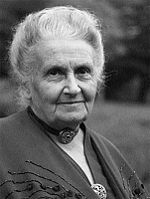
First practical color photographic plates - 1907.
"Autochrome Lumi貥"
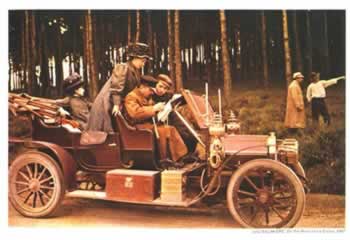
Jamsethji Tata

Taj Hotel, Mumbai

The Chinese Diamond Sutra ,Tang Dynasty,
868 CE.
British Library.

Melrose House, Pretoria
Treaty of Vereeniging was signed here

A. A. Michelson

E. Moneta
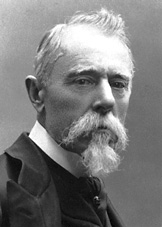
L. Renault

modern scout fleur-de-lys
of palm fronds (iraq)

Brownsea Island

E. Buchner

A. Laveran

Sir J.J.School of Art, Mumbai
Commemorative stamp
Indian P and T issue :2.3.1982

Lahore railway station 1880

R. Kipling
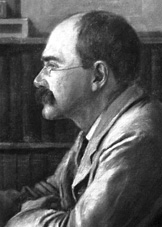
King Oscar II of Sweden
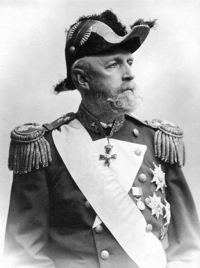
|


















